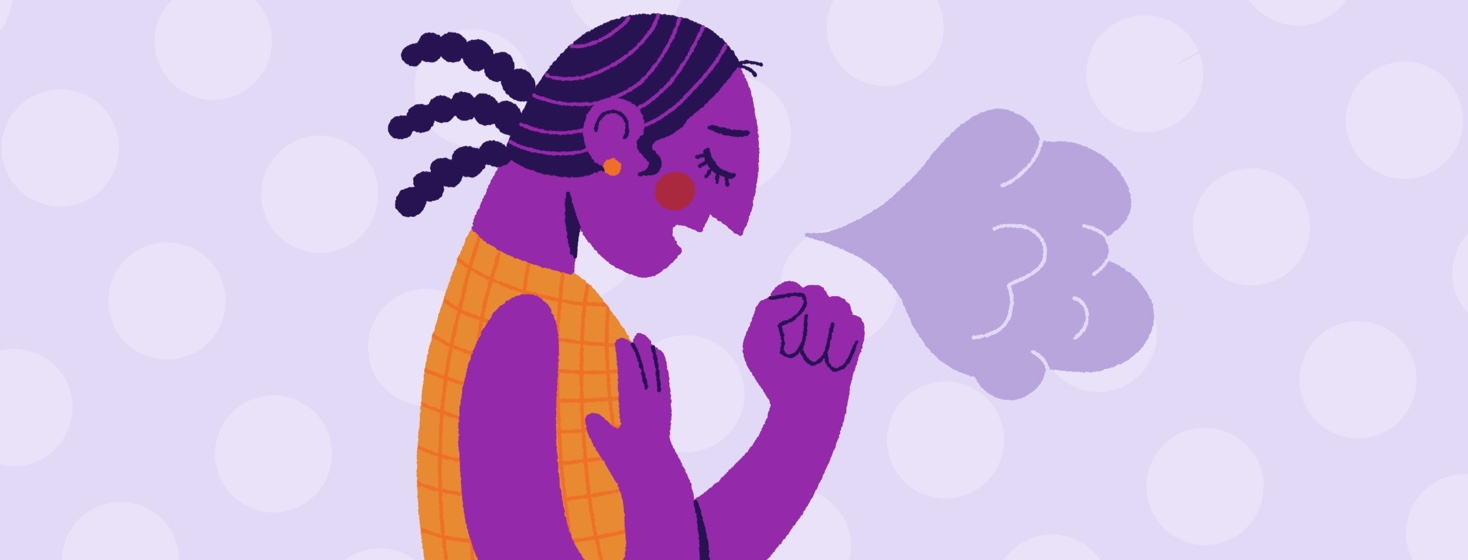Why Do We Cough?
Coughing is a normal part of life. In fact, coughing even serves an important purpose in keeping your throat and lungs healthy.
“When things such as mucus, germs, or dust irritate your throat and airways, your body automatically responds by coughing. Similar to other reflexes such as sneezing or blinking, coughing helps protect your body.”1
However, some of us living with lung cancer may have initially visited a doctor because of concerns about a persistent cough.
When does a cough become concerning?
While there are many alternative causes of a long-lasting cough, a persistent cough can be a symptom of lung cancer, occurring because “cancerous cells are obstructing the airways in [the] lungs” or due to a malignant pleural effusion, which is fluid surrounding the lungs.2
Such coughs symptomatic of lung cancer can be accompanied by spitting up blood, chest pain, shortness of breath, and a variety of other symptoms. Often, once lung cancer treatment starts, these coughs diminish in intensity or disappear. If they don’t, they can usually be managed and treated with medications through palliative care.
Lung cancer treatments can cause coughs
Ironically, many cancer treatments themselves can lead to a chronic cough, making it often difficult to distinguish this common symptom of lung cancer from an annoying side effect brought on by treatment. Immunotherapy drugs can create inflammation of the lungs, resulting in a cough. Radiation to the chest can also cause inflammation and have the same effect. Even targeted therapy drugs, especially those that have dry skin as a potential side effect, can lead to a cough. Additionally, many people develop a cough while undergoing chemotherapy or right after surgery.
It’s important to talk to your doctor about managing this side effect, particularly if it impacts your sleep or activity level, and monitor yourself to make sure that your cough isn’t changing or worsening.3
Sometimes a cough is just a cough
Not every patient living with lung cancer and going through active treatment will have a persistent cough, though. I have never experienced this as a symptom or side effect, despite targeted therapy, surgery, and a pleural effusion at different points throughout my journey.
However, I have noticed that friends of mine outside of the lung cancer community get very nervous when I occasionally cough, unlike their response when others who are not living with lung cancer cough! If I am eating with a group of friends and I swallow the wrong way and have a coughing fit, everyone stops talking and eating and starts giving me worried looks, asking if I’m okay many times.
While I appreciate the concern, sometimes a cough is just a cough!
Having a cough has become stigmatized since COVID
This has become a more significant issue lately due to the COVID pandemic. As I mentioned above, many people living with lung cancer are also dealing with coughs, whether they are symptoms of the cancer or side effects of treatment.
However, having a cough has pretty much become a stigma lately, due to it also being a symptom of COVID. In waiting rooms and other public places, I have seen people apologize for coughing and have seen others move away from those with a cough! I think it’s important for everyone to realize that while coughing could be indicative of a contagious disease, it is also still a completely normal bodily reflex!
Editor’s Note: We are extremely saddened to say that on June 23, 2024, Ivy Elkins passed away. Ivy’s advocacy efforts and writing continue to reach many. She will be deeply missed.

Join the conversation